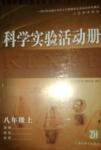题目内容
Stratford –on-Avon, as we all know, has only one industry—William Shakespeare—but there are two clearly separate and different branches. There is the Royal Shakespeare Company (RSC), which presents excellent productions of the plays at the Shakespeare Memorial Theatre on the Avon. And there are townsfolk who largely live on the tourists who come, not to see the play, but to look at Anne Hathaway’s Cottage, Shakespeare’s birthplace and the other sights.
The townsfolk of Stratford doubt that the theatre adds a penny to their income. They frankly dislike the RSC actors, those who walk with long hair and beard and great noise.
The tourist stream are not entirely separate. The sightseers, who come by bus and often take in Warwick on the side, don’t usually see the plays. And some of them are even surprised to find a theatre in Stratford. However, the playgoers do manage a little sight-seeing along with their play-going. It is the playgoers, the RSC declares, who bring in much of the town’s income because they spend the night (some of them four or five nights ) pouring money into hotels and restaurants. The sightseers can take in everything and get out of town by nightfall.
The townsfolk don’t see it this way and local government does not put away some money for the RSC. Stratford cries poor traditionally. Nevertheless, every hotel in town seems to be adding a new wing or a cocktail room. Hilton is building its own hotel there, which you will be sure will be decorated with Hamburger bars, dinner rooms ad so forth, and will be very expensive.
Anyway, the townsfolk can’t understand why the RSC needs help from the government. The theatre has broken attendance records for three years in a row. Last year, its 1,431 seats were 94 occupied all year long and this year they will do better. The reason, of course, is that costs have rocketed and ticket prices have stayed the same. It would be a shame to raise prices too much because it would drive away the young people who are Stratford’s most attractive customers. They come entirely for the plays, not the sights. They all seem to look alike, though they come from all over.
64.From the first two paragraphs, we learn that .
A.the townsfolk think little of the RSC’s contribution to the town’s income
B.the actors of RSC imitate Shakespeare on and off stage
C.the two branches of the RSC are not on good terms
D.the townsfolk earn little from tourism
65.It can be inferred from the third paragraph that .
A.the sightseers cannot visit the castle and the palace separately
B.the playgoers seem to spend more money than the sightseers
C.the playgoers go to no other places in town than the theatre
D.the sightseers do no other things than shopping in town
66.By saying “Stratford cries poor traditionally”, the author means that _________.
A.Stratford has long been in financial difficulties
B.Stratford cannot afford the new projects
C.the town is not really short of money
D.the townsfolk used to be poorly paid
ABC

 科学实验活动册系列答案
科学实验活动册系列答案
| |||||||||||||||||||||||||||||||||||||||||||||||||||||||||||||||||||||||||
Visit one of the most outstanding prehistoric sites in the United Kingdom, and enjoy amazing historic English attractions. Please notice that every tour starts and ends in London. Have a tour with Visiting Britain.
Stonehenge Direct Tour
Visit one of the most outstanding prehistoric sites in England and in the world: Stonehenge.
Duration: 1 day
Price: Adults £29.99, Children £28.99
Stonehenge and Bath Tour
Enjoy a late breakfast before heading to the Stonehenge site and end your day with an original visit of the Roman Baths.
Duration: 10 hours(departure 10:30 am return 8:30 pm).
Price: Adults £64, Children £60
Stonehenge, Bath and Windsor Castle Tour
Explore three of England’s most popular sites to visit: Windsor Castle, Stonehenge and the Roman Baths.
Duration: 1 day(return 8:30 pm)
Price: Adults £64.80, Children £61.20
Stonehenge, Lacock and Bath Tour
Come and feel the warmth of Bath, see the pleasant village of Lacock, and solve the mystery of Stonehenge.
Duration: 1 day(return 6 pm)
Price: Adults £85, Children £78
Stonehenge, Windsor and Oxford Tour
Choose Stonehenge, Windsor and Oxford Tour and enjoy ancient mysticism, royal history and illustrious knowledge.
Duration: 1 day
Price: Adults £72, Children £68
Stonehenge, Bath a nd Stratford Tour
nd Stratford Tour
Take a tour to make the most of the English historic attractions: the Stonehenge site, Bath and Stratford, the b irthplace of playwright William Shakespeare.
irthplace of playwright William Shakespeare.
Duration: 1 day(return 8 pm)
Price: Adults £79, Children £68
【小题1】The purpose of the passage is to _____________.
| A.advertise some popular English attractions |
| B.recommend some different tours in England |
| C.tell readers how to save money while traveling |
| D.describe different routes to travel in England |
| A.£136 | B.£170 | C.£110 | D.£126 |
| A.At 6 pm. | B.At 7 pm. | C.At 8 pm. | D.At 8:30 pm. |
 plan to travel with your kid who is a fan of Shakespeare, you would choose _______.
plan to travel with your kid who is a fan of Shakespeare, you would choose _______.| A.Stonehenge Direct Tour |
| B.Stonehenge, Bath and Stratford Tour |
| C.Stonehenge, Windsor and Oxford Tour |
| D.Stonehenge, Bath and Windsor Castle Tour |